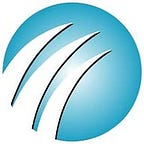Adolescent literacy
See how Australian high school students are achieving is a PISA cake — but the results are concerning.
PISA is the OECD’s Programme for International Student Assessment, designed to get a big picture of what young people across the world know and do. Every year, hundreds of thousands of 15-year-old students take part in a series of activities to assess either their reading, maths, science, and life skills like problem solving and teamwork.
More recent assessments also looks at their well-being, with questions about bullying, skipping school, and their hopes and fears for the future. They’re all still in school, but the form that schooling take varies from boarding school to home schooling, well-equipped metropolitan institutions with thousands of students to isolated rural schools with just a handful.
The most recent batch of comprehensive reading and literacy PISA data is from 2018. About 600 000 students took part that year, from 79 participating countries. In Australia 14 273 students across 779 schools did the test.
Below are some of the findings from Australia’s results:
In reading, Australia’s young people performed similarly in 2018 to the previous round in 2015. But looking at the longer-term picture, our results have been steadily declining since 2000. That’s as far back as the data goes: 2000 was the first year Australia took part in the literacy component of PISA.
The breakdown of results shows the biggest drop is in students who were already struggling, and now seem to be slipping through the cracks. We’re not alone in this: performance declined, and the gap between high and low achievers widened, in Australia, Finland, Iceland, Korea, the Netherlands, the Slovak Republic and Sweden.
Numeracy and science knowledge have also declined since we started taking part in PISA for those domains, in 2003 and 2006 respectively. The drops in these areas are not as significant as that in reading, and are more evenly spread across students of all abilities.
This doesn’t mean Australia falling behind our overseas peers, though. Despite the decline, our overall score is above the OECD average in reading and science, and meets the average for maths. Quite extraordinary really.
PISA data is also broken down by the students’ socio-economic circumstances, so we can see how our nation’s most advantaged youth are achieving compared to the least. Social-economically advantaged students in Australia outperformed their disadvantaged peers, in line with the OECD average. 24% of advantaged students were identified as top-performing readers, compared to 6% of disadvantaged students. As wide as that gap is, it’s less than the OECD average which sees an even greater disparity between the reading ability of the haves and the have-nots. And it isn’t just reading: socio-economic status remains a strong predictor of achievement in maths and science in all OECD countries.
High-achieving students from disadvantaged backgrounds tend to aim lower, despite their academic results. PISA found more than 90% of Australia’s high-performing, advantaged students expect to go on to tertiary studies, compared to about 75% of similarly-performing disadvantaged youth.
The insight into our young people’s mental health were concerning. Compared to other students in OECD countries, Australian kids reported:
· more frequent bullying
· more fear of failure
· higher rates of skipping school
· higher rates of feeling lonely at school.
You can find Australia’s full results and analysis for PISA 2018 here: https://www.oecd.org/pisa/publications/PISA2018_CN_AUS.pdf
The 2021 study was postponed due to covid. The testing for reading eventually took place last year, and when the full results are released it will be very interesting to see what effect COVID19 and the associated lockdowns and upheaval had on our young people’s academic achievement and mental well-being.
Unfortunately it means as they become adults and need to be able to engage with information in the public domain from accessing banking and financial content to renting or mortgage agreements, mobile phone contracts, their health services, legal services, government services and other everyday information they will also be extremely advantaged. Access to information like Easy English will continue to be of paramount importance to so many in all our communities.
Leave a comment or drop us an email about what you have observed of reading for the youth of today.
Jodie van de Wetering
Specialist content writer
Access Easy English
Office phone: 0466 579 855
Email: jodie@accesseasyenglish.com.au
Website: https://accesseasyenglish.com.au/
Facebook: https://www.facebook.com/accesseasyenglish
LinkedIn: Access Easy English
Twitter: @accesseasyengli
